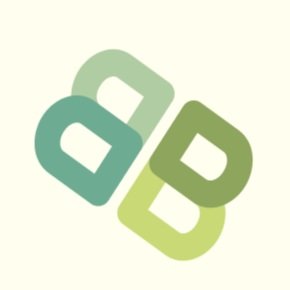eating disorders
Resources for healing from eating disorders
Select a topic by clicking the button below or scroll down to explore and discover how to take care of yourself.
If you’ve found yourself on this page, maybe you’re experiencing an eating disorder, you know someone who is, or you just want to educate yourself. Whatever the reason, you are not alone and we are here to help. You have every right to love the body that you’re in, but we understand that sometimes there are obstacles to feeling this way. Let’s get started by understanding a bit more about eating disorders.
What are eating disorders?
It’s common for people to think of eating disorders as a simple thing; either eating too much (Bulimia nervosa) or not eating enough (Anorexia nervosa). Though, what people don’t realise is that eating disorders are much more complex than this, don’t happen by choice, and they can happen to anyone. For example, some eating disorders might happen due to mental health issues such as Binge Eating Disorder, Avoidant/Restrictive Food Intake Disorder (ARFID) and Other Specified Feeding or Eating Disorder (OSFED). Eating disorders can influence our physical and mental health, and can be harmful to our bodies. In some cases, poor health and well-being caused by eating disorders could be a risk factor for preventable death. If you are struggling with an eating disorder, please know that you don’t have to figure it out on your own, and that there are professionals who can guide you through it. In fact, 1 in 12 people have accessed mental health support for Eating Disorder recovery.
Why do Eating Disorders happen?
Building on what we learnt above, Eating Disorders don’t always happen as a conscious choice. There are many reasons they may occur. It might stem from body dissatisfaction, low self-esteem and more. Whether you are experiencing an Eating Disorder or know someone who is, it’s helpful for you to understand these factors and how they contribute to the possible development of Eating Disorders.
Habits. Everyone deals with stress differently and has different techniques to manage what they’re feeling. Those with an eating disorder might use food as a way to comfort themselves, and may automatically turn to eating in times of trouble. This can be challenging when trying to recover from an eating disorder, as it often becomes an automatic stress-management response.
Biological influence. Interestingly, certain genes are actually capable of making people more likely to develop an eating disorder. The human brain is incredibly complex and can have a strong effect on your diet and your habits.
Social trend. We find ourselves living in a society where popularity is often based on stereotypes of a specific body type; people are expected to have a healthy diet and to look perfect. When this expectation becomes “normal”, it’s easy for people to feel dissatisfied with their body where they don’t look the same. As a result, it can be stressful when people can’t reach their ideal body type, and the stress could cause an eating disorder. But remember, you are enough as you are.
Noticing The Signs
In order to take good care of yourself or those around you, it’s helpful to be aware of the common signs of Eating Disorders.
Behaviour
A noticeable change of eating habits, such as eating too much or avoiding eating, which is consistent and repetitive
Finding unhealthy excuses for certain eating habits, such as “This is a meal to reward myself” or “I am not hungry”
Avoiding social events that involve eating
Having a strong focus on weight or having obsessive body checking behaviours
Evidence of vomiting or laxatives to eliminate unwanted calories from meals
Mental
Unusual fear of weight changes
Emotional instability
Extreme low self-esteem related to body dissatisfaction
Excessively thinking about food or the related behaviour
Feelings of uncontrollable behaviour regarding eating
Physical
Rapid or frequent weight changes
Having difficulty with concentration
Not being able to perform normal activities
Sensitive to the coldness
Irregular periods (for women)
Supporting Others With Eating Disorders
After reading all of this information, you might be wondering whether there are people in your life experiencing an eating disorder. The best thing that you can do is to be a supportive, loving and non-judgemental friend. You might be able to spot an eating disorder if someone begins to change their eating behaviours unexpectedly or secretively. They might also start to become socially withdrawn, tired and irritable. If you notice changes in someone close to you, do not hesitate to reach out and offer your help. You can tell them that you have noticed a change in their behavior not only towards food, but that they are sadder, isolated or that they have lost weight in strange ways. Let them know that you are here to support them. Remember, it is not your job to fix their problems, but you can aid them in finding professional support.
Looking after yourself (and others)
Practice self-care. Just like you have people in your life that you care about, it’s important to care for yourself too. If you start noticing you are eating noticeably more than usual or start skipping meals frequently, it’s time to self-reflect, to relax and to be kind to yourself. If you are journeying through an Eating Disorder, it’s equally as important to be kind to yourself, to practice positive self-talk, and to remember that you are doing your best. It’s easier said than done, but loving yourself is a vital step in recovery.
Get around people. Experiencing an eating disorder is incredibly difficult to deal with and can bring a lot of stress; but you don’t need to do it alone. It’s important to have people in your life who you can talk to, to help release your stress. Even if they can’t help you, it’s amazing how much good it can do to just talk to a friend and let them care for you. Try reaching out to family or friends and letting them know what’s going on. If you know someone who is going through an Eating Disorder, make sure you reach out to let them know you are there for them.
Seek professional support. Though friends are incredibly helpful in providing emotional support, professionals are equipped to provide you with the tools and guidance to help you recover from an Eating Disorder.
If I Have An Eating Disorder, When Should I Get Help?
An eating disorder isn’t something you should try and overcome on your own. It might feel like it’s taking over your life, and so the best thing to do is to seek professional medical help.
Unfortunately, many people with eating disorders may believe that they do not need treatment. If you are concerned about a loved one, urge them to speak to a doctor. Even if your loved one is not ready to acknowledge that they have a problem with food, you can start the journey by expressing your concern and your desire to listen. Pay attention to eating habits and beliefs that can indicate unhealthy behaviors, as well as peer pressure that can trigger eating disorders. Plus, you can utilise the list of organisations below for yourself or a loved one.
HERE ARE SOME MORE USEFUL RESOURCES
Apps to Download
Websites + Articles
Head To Health - Resources for you on how to manage this
Eating Disorders Queensland - Peer support mentor program, group therapy, meal support, support for carers, Trauma informed yoga. (16+ YRS)
Centre for Clinical Intervention - Modules to guide you through overcoming your eating disorder https://www.cci.health.wa.gov.au/Resources/Looking-After-Yourself/Disordered-Eating
Butterfly Foundation - National Helpline 1800 ED HOPE provides free phone, email and web support and referral for individuals experiencing an eating disorder
Inside Out Institute - Education about Eating Disorders
Reach Out - A supportive, safe and anonymous community to connect with others in the same situation and find help
Nurse Journal - Caring for Patients with Eating Disorders
Books
What I Like About Me - Jenna Guillaume
Unpack Your Eating Disorder: The journey to recovery for adolescents in treatment for Anorexia Nervosa and Atypical Anorexia Nervosa - Linsey
Loving Someone With an Eating Disorder: Understanding, supporting, and Connecting with your partner - Dana Harron
Binge Control: A Compact Recovery Guide - Bulik Cynthia
The Overcoming Bulimia Workbook - Maccabe R
The Disappearing Sister - Elizabeth Cummings
First Steps Out of Eating Disorders - Jane Smith
The Parent’s Guide to Eating Disorders - Jane Smith
Loved to Eat, Hate to Eat: breaking the… - Elyse Fitzpatrick
The Love Recovery Workbook for Eating Disorders - David Stoop
A New Day - Emma Scrivener
Eating Disorders - Emma Scrivener
Little Girl Crying: My Life-Long Struggle - Belinda Rose
ORGANISATIONS to connect with
Sane Australia (All states, 1800 18 7263, Mon-Fri, 10am-10pm) - Online counselling, group support and support worker assistance.
Butterfly (All states, 1800 33 4673, Mon-Sun, 8AM-12AM) - Counselling (online and face to face), support groups, support programs and treatment.
Eating Disorders QLD (QLD, 07 3844 6055, Mon-Fri, 9am-5am) - Individual counseling, mentor program, group support, yoga classes, meal support training, and information download.
QLD Eating Disorder Service (QLD, 07 3114 0809, Mon-Fri, 9am-5pm) - Treatment service, support program and mental health support.
Eating Disorders Carer Help Kit (QLD, 07 3844 6055, Mon-Fri, 9am-5pm) - Support for Eating Disorder carers, meal support training, mentor programs and support groups.
FAITH-BASED RESOURCES AND SUPPORT
Prayer
Heavenly Father, because of You I do not have to fight this battle alone. Although I sometimes struggle with binge eating disorder, I will stand firm and see the deliverance that You will give me. I am not afraid or discouraged by what I suffer. I know that although I feel defeated, I am never alone because You are always with me. Thank you Father for my deliverance. Amen
I have the mind of Christ and hold the thoughts, feelings and intentions of His heart. I take every thought captive to the obedience of Christ Jesus my Lord. Every flaming arrow shot at my mind is stopped by the shield of faith. I do not entertain vain imaginations. I think only on the glorious and true things of God. I am more than a conqueror by the word of my testimony and the blood of the Lamb. Amen
Scriptures
“Do you not know that your bodies are temples of the Holy Spirit, who is in you, whom you have received from God? You are not your own; you were bought at a price. Therefore honor God with your bodies.” - Corinthians 6:19-20
“For we are God’s masterpiece. He has created us anew in Christ Jesus, so we can do the good things he planned for us long ago.” - Ephesians 2:10
"His confidence shall be rooted out of his tabernacle, and it shall bring him to the king of terrors." - Job 18
“Come to me, all you who are weary and burdened, and I will give you rest. Take my yoke upon you and learn from me, for I am gentle and humble in heart, and you will find rest for your souls.” - Matthew 11:28-29
“No temptation has overtaken you that is not common to man. God is faithful, and he will not let you be tempted beyond your ability, but with the temptation he will also provide the way of escape that you may be able to endure.” - Corinthians 10:13
Inspiring Messages
Finding Freedom from Eating Disorders and Body Issues - Constance Rhodes, Saddleback Church
Delivered from Anorexia - Ps Bill Johnson
The Trap of Eating Disorders - Focus On the Family
Finding Freedom from Eating Disorder - Billy Graham billygraham.org
References
Eating disorders Australia. Anyone can be affected by an eating disorder
Butterfly: Let’s talk eating disorder, Risks and warning signs
This website is provided for general information only. It is presented in good faith, however we make no representation or warranty of any kind, express or implied, regarding the accuracy, validity, reliability, availability or completeness of any information on the site. We encourage you to conduct your own research and enquiries. This website provides links to external websites. It’s Not Ok does not control and accepts no liability for the content of those websites or for any loss arising from use or reliance on those websites. It’s Not Ok does not endorse any external website and does not warrant that they are accurate, authentic or complete. Your use of any external website is governed by the terms of that website.









